 I’m not going to snow you over here. Up until about 2008, I had no interest to become a true crime writer. I had been a cop for about 16 years in Las Vegas and life was good. I was at the top of my game, respected in my profession, was raising a family, and cruising right along. I read a book maybe once every couple of years—life was busy and I spent most of my down time with my family or coaching youth baseball.
I’m not going to snow you over here. Up until about 2008, I had no interest to become a true crime writer. I had been a cop for about 16 years in Las Vegas and life was good. I was at the top of my game, respected in my profession, was raising a family, and cruising right along. I read a book maybe once every couple of years—life was busy and I spent most of my down time with my family or coaching youth baseball.
I was living out my dream of being a police officer and had worked my way up to detective. Writing anything other than a police report, a love note to my wife, or perhaps the occasional letter to the editor of the local newspaper to rant about something was about it for me.
Then in September of 2006, it happened. I lead an investigation like no other I had ever known or heard of before—an 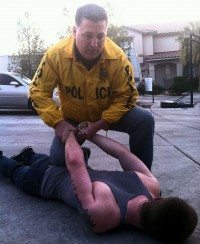 investigation that changed my life. As a detective, I worked in a unit responsible for dealing with the worst criminals Las Vegas had to offer. A multiple-time convicted felon named Daimon Monroe turned out to be the most prolific burglar I have ever dealt with. Without revealing all of the details here, I’ll tell you the investigation led to the largest stash of stolen property in Nevada history, to the tune of several million dollars, and the seizure of hundreds of thousands of dollars that had been accumulated from the sales of stolen goods.
investigation that changed my life. As a detective, I worked in a unit responsible for dealing with the worst criminals Las Vegas had to offer. A multiple-time convicted felon named Daimon Monroe turned out to be the most prolific burglar I have ever dealt with. Without revealing all of the details here, I’ll tell you the investigation led to the largest stash of stolen property in Nevada history, to the tune of several million dollars, and the seizure of hundreds of thousands of dollars that had been accumulated from the sales of stolen goods.
But then it got worse when we discovered Daimon had sexually abused his daughters. And wait, there’s more…we learned Daimon was trying to have me, a judge and a prosecutor murdered. This wasn’t just some guy who was mad and had some emotional outburst during a rage. No, Daimon tried to put a plan in motion and solicited another criminal to help make the murders go down.
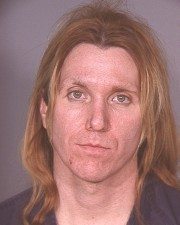
Daimon Monroe November 2006
When all of that took place, I knew someone needed to write a book about the ordeal, and my father-in-law, a university professor, said I should be that person. When he first said that, I laughed. I didn’t know a thing about writing a book. I could write some, and had taken a couple writing courses in college many years ago, but writing a book was not something I could have ever imagined being on my to do list.
After pondering it for a few days, I asked myself, “Why?” If I did this, what did I want out of it?
Interestingly, I found my motivation then and still today has nothing to do with making money. It’s actually an extension of why I have always wanted to be a cop—I look for opportunities to impact people’s lives in a positive way. I saw a chance to tell people a harrowing and very personal story of greed, lust for power, horror, justice, love and redemption. I hope readers will find a few parallels to their own lives that bring meaning and understanding, perhaps even in the midst of their own hardship and destruction. Success for me will be large numbers of people reading the story, finding the takeaway, and it being meaningful for their own lives.
As I started writing the first draft of my manuscript, I began to read everything I could get my hands on about the publishing industry—how it works, what the different entities are and how they function. The Complete Idiot’s Guide to Getting Published, 4th Edition, provided a good starting point to understand the process, mechanisms and roles of different entities in the publishing industry. The great ancient oracle, Google, provided almost unlimited information about literary agents, editors, publishers, and ghostwriters.
It didn’t take long to see I needed a lot of training and mentoring to learn how to write well. My manuscript was one big, long, boring, quasi-newspaper article devoid of emotion, drama, tension and release, no real character development, no feelings and no emotional investment from the reader. Nobody was going to read it past the first few chapters.
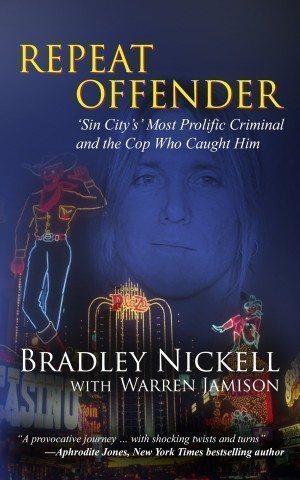 Six years and twenty-one rewrites of my manuscript later, here I stand, on the precipice of my true crime book, REPEAT OFFENDER, being published by WildBlue Press on 04/14/15. Either I’ve learned how to write, or I’ve done a magician’s job of fooling everyone, including some lifelong writing pros with pedigrees that most writers would die to have. Don’t tell anyone, but I’ve got a stack of Cliff’s Notes under my bed that I use to fool people into thinking I can write.
Six years and twenty-one rewrites of my manuscript later, here I stand, on the precipice of my true crime book, REPEAT OFFENDER, being published by WildBlue Press on 04/14/15. Either I’ve learned how to write, or I’ve done a magician’s job of fooling everyone, including some lifelong writing pros with pedigrees that most writers would die to have. Don’t tell anyone, but I’ve got a stack of Cliff’s Notes under my bed that I use to fool people into thinking I can write.
Sure, I left an awful lot out about how I got better and really learned how to write. Why? Because I’ve found there is no one path to becoming a writer. There are traditional ways to learn how to write—formal schooling, tutelage from professional writers, working in low-level writing positions somewhere earning your chops—and there are unorthodox ways, which I’ll confess, have a lot of my fingerprints on them.
The bottom line is, determination, the ability to accept rejection and get better from it, and good old fashioned ingenuity are what it takes to be a good writer. The ability and humility to ask questions of people who know the answers is cornerstone in the process of learning how to write well. Fortunately, I found dozens of people over the course of five or six years who were more than willing to nudge, poke and kick me in the tail, so I would get better.
When some readers want to get away from the crushing reality of their own lives, they turn to their favorite writer to build an escape hatch that leads to a place where they feel unmolested by their troubles. That’s a pretty heavy responsibility to take on. I want to be the writer who has people staying up late at night to get one more chapter in while their spouse tells them to turn the lamp out. As a writing mentor (NY Times Bestseller Steve Jackson) once said to me, “I want them to smile when I want them to smile. And I want them to cry when I want them to cry.”
 Being a good writer isn’t a destination, it’s a journey. Yeah, that’s cliché, and violates a popular rule to good writing, I know. But If I’m going to be a good, no, a great writer, it doesn’t happen with one good book and remain in place forever. It must be nurtured and fed and developed.
Being a good writer isn’t a destination, it’s a journey. Yeah, that’s cliché, and violates a popular rule to good writing, I know. But If I’m going to be a good, no, a great writer, it doesn’t happen with one good book and remain in place forever. It must be nurtured and fed and developed.
WildBlue Press has put together a consortium of experienced, award-winning, and best-selling authors who will be publishing their works out from under the difficult and sometimes unrewarding umbrella of big publishing houses. Big publishers want almost all control and aren’t always the best at sharing the fruits of the labor. WildBlue Press has a vision to break that mold and become a trendsetter in the new age of publishing, where the relationship between publisher and writer is more of a partnership.
The takeaway from this post is two-fold: first, if you’ve ever had an interest in writing, but don’t think you’ve got what it takes, start writing anyway, and make a plan on how to get better. Second, never give up on your plan. You can modify it, put it on hold, change directions, but never just give up. If you really want to be a writer, it’s probably not because you thought you’d get rich. It’s because you have a passion for something and want to share that with others. Don’t go twenty years and say, “I wish I would have written that book.”
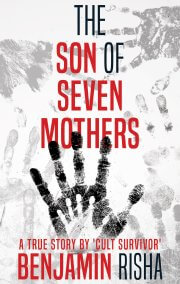

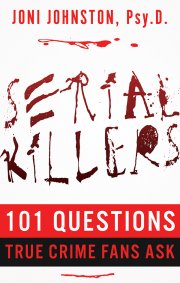
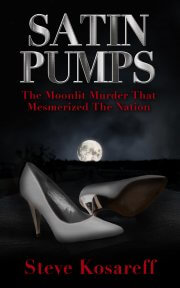
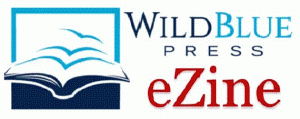 Join our email list
Join our email list
Leave a Reply